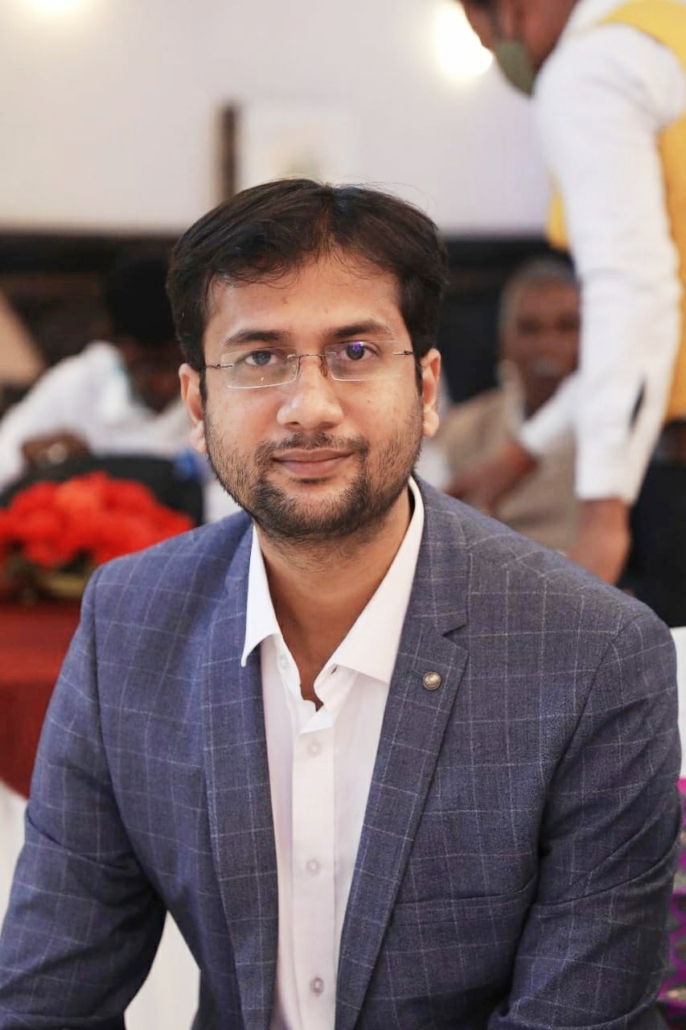Hi all, I am Abhinav Gautam and joined Tyndall as a Marie Curie Sparkle Researcher under Prof. Paul Townsend. I have completed my PhD in Electronics Engineering from Indian Institute of Technology (ISM) Dhanbad (India). During my PhD. I have worked on Fibre Bragg Gratings based optical sensors and their applications in optical weight measurement and health monitoring.
In high school, I was more of a person who ask questions to himself, like how? And Why? On the topics such as Maths, Physics, Chemistry and Biology. I tried to keep finding solutions until my inner urge of questioning was satisfied with the answers. If I cannot find one, I try to talk with my friends and teachers. Most of the time, being attentive in class provide answers to my questions. I like reading books from my school days that helped me to explore more in academics and real world.
In my school days, I never knew I would pursue a career in research/ academics. But, there are always certain traits from the beginning that may help you to decide your career in research, such as:
- Not getting bored with science
- Interest in reading books
- Having patience and working hard to find solution
- Trying different ways to get a solution, for example: finding different solutions to prove a theorem in maths.
My initial motivation to have an academic career was my interest in explaining something to other students which I have learned in class or from books. I love to clear doubts of my friends and take on challenges in solving any numerical problem. It gives me inner satisfaction that all my hard work pays off if I could help others understand different scientific phenomena. However, as I moved forward in my career, the scientific phenomenon became much more serious and complicated. They became more interesting, and the desire to explore more motivated me to pursue my career in research further. Also, these days you can continue your research in academics or in industry, which is one of the perks of being a researcher.
I am an Electronics engineer who chooses academics as a career path. I completed my masters and doctoral degree from the Indian Institute of Technology (ISM) Dhanbad. I have experience in both simulation and experimental analysis of fibre optic based sensors. One thing that really motivated me and helped me to stay on my path was application of my research. I tried to solve real-life problems faced by industries and biomedical personnel. The thought that if I were successful my research would directly affect day to day life of certain people has pushed to move forward.
While working towards being a researcher, I learned to be patient and diligent with efforts towards exploring the unique problem and finding its solution. Life in academics is quite different from being in industry, you try making your way to solve a unique problem where you get feedbacks from your supervisors and colleagues. I will not say it is difficult to be a researcher, but yes, it is a different process that can only be endured by the person who has passion and interest in his research area. By the end of your doctoral degree which is like a final stage for being a researcher, I can assure you it would give a great deal of satisfaction that you have achieved something from the hard work done in past several years. Also, it will provide ample opportunities to continue your research in academics and industries.
I always recommend students and people who are quite unsure of choosing a career path to list their likes and dislikes of skills, subjects and hobbies. Always listen to your inner self when you study different subjects, it will let you understand what you are interested in. It always takes time to get a clear view of what you want to do, so ask your friends, parents and teachers about what they think you are better at. Sometimes it helps to give yourself some options and brainstorm on them.
At last, sometimes it’s hard to pursue the career you like, but that’s worth it.
Sparkle has received funding from the European Union’s Horizon 2020 research and innovation programme under the Marie Sklodowska-Curie grant agreement No. 847652 and from Science Foundation Ireland.






